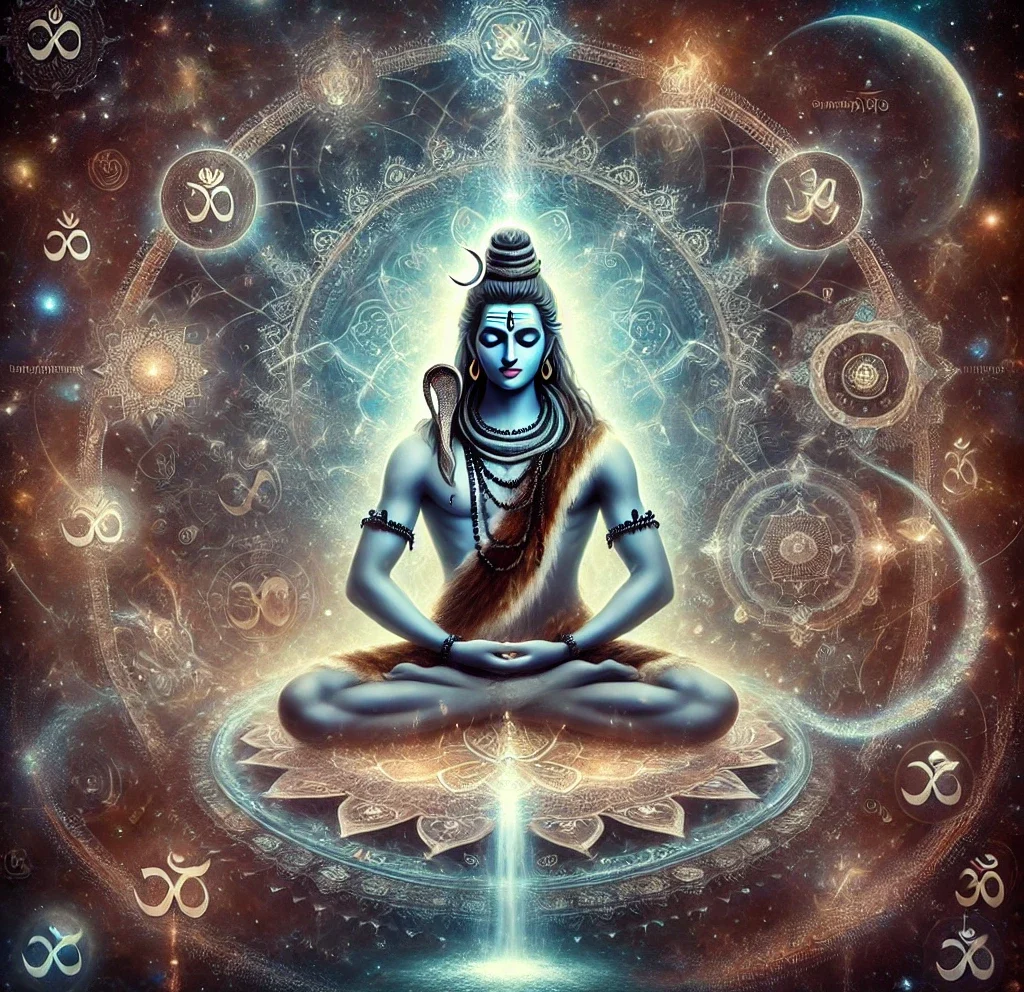Shiva Sutras
Last Updated
December 26, 2024

The Shiva Sutras are an ancient and profound collection of 77 aphorisms that form the foundational text of Kashmir Shaivism, a school of Indian philosophy that emphasizes the non-dualistic nature of reality. These sutras offer deep insights into the nature of consciousness, self-realization, and the path to liberation (moksha).
Origin and Discovery
The Shiva Sutras are believed to have been revealed to the sage Vasugupta in the 9th century CE. According to tradition, Vasugupta lived in the Kashmir Valley, a region known for its rich philosophical heritage. The story of their discovery is imbued with mysticism:
It is said that Lord Shiva himself appeared to Vasugupta in a dream and instructed him to seek out a specific rock on Mahadeva Mountain. Upon visiting the mountain, Vasugupta found the sutras inscribed on the rock. This site, known as Shankaropala (or the “rock of Shiva”), is considered a sacred location. Vasugupta then disseminated this divine knowledge, which became the cornerstone of Kashmir Shaivism.
Vasugupta – The Author
Though the Shiva Sutras are traditionally considered a revelation from Shiva, Vasugupta is credited with bringing them to light and interpreting their meaning for human understanding. Vasugupta was a revered scholar and mystic who sought to revitalize spiritual thought in his time. His interpretations and teachings laid the groundwork for subsequent philosophers of Kashmir Shaivism, such as Abhinavagupta and Kshemaraja.
Philosophical Context
The Shiva Sutras offer a path of realization based on the idea that the individual self (jiva) is not separate from the universal consciousness (Shiva). This text is divided into three main sections, each corresponding to a different method (upaya) of attaining self-realization:
- Shāmbhavopāya – The path of pure, direct awareness or intuition.
- Shāktopāya – The path of mental concentration and subtle energy.
- Āṇavopāya – The path of physical and sensory-based practices.
These different paths are designed to guide spiritual seekers of varying capacities and inclinations toward the realization of their true divine nature.
Significance
The Shiva Sutras emphasize that liberation (moksha) is achieved through recognizing the unity between the self and the infinite, universal consciousness. They form the bedrock of Trika Philosophy (another term for Kashmir Shaivism), which views existence as a triadic interplay between Shiva (consciousness), Shakti (energy), and the individual soul.
The teachings of the Shiva Sutras have inspired generations of mystics, scholars, and seekers by providing a framework for understanding the nature of reality and one’s place within it. The aphorisms are brief yet deeply contemplative, inviting practitioners to look beyond the limitations of the ego and experience the boundless freedom of universal awareness.
The Shiva Sutras, with their blend of philosophy, mysticism, and practice, continue to be a timeless guide for those on the path of spiritual awakening.
- 3 Sections
- 0m Duration
Śāmbhavopāya (Path of Divine Consciousness)
Śāktopāya (Path of Energy or Knowledge)
Āṇavopāya (Path of the Individual or Effort)
Free